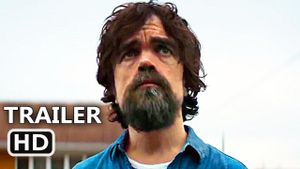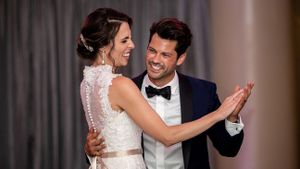The New Orleans Saints have faced significant scrutiny following revelations about their involvement with the Archdiocese of New Orleans amid the clergy sexual abuse crisis. Emails obtained by the Associated Press (AP) reveal extensive communications between Saints executives and church officials, raising questions about the nature of their collaboration and the appropriateness of their actions during this scandal.
When church leaders prepared to release a list of accused predatory priests, they turned to the Saints, led by team president Dennis Lauscha and senior vice president of communications Greg Bensel, who played pivotal roles in managing the public relations fallout. The internal correspondence demonstrates the team’s proactive steps to influence the narrative surrounding the release of the list, which had invited increased scrutiny and potential civil litigation against the church.
According to the emails, the Saints were among the first outside the church to review the list of clergy accused of sexual abuse. Notably, Bensel kept team executives informed about media interactions and discussions with district attorneys prior to the list's public disclosure. This involved drafting talking points for Archbishop Gregory Aymond and consulting on strategies to mitigate the crisis. “We allowed ourselves to take certain people off” the list, one of the emails reportedly stated, showing direct involvement from Saints officials.
The church's efforts, coordinated with the Saints, appear to have targeted media management rather than full transparency. Critics, including state Rep. Mandie Landry and abuse survivors, expressed outrage. Landry decried the actions as “disgusting” and questioned the Saints’ motives for intervening on behalf of alleged perpetrators.
Survivor Kevin Bourgeois, reflecting on his experience, voiced feelings of betrayal. “It forces me to question what other secrets are being withheld,” he said, highlighting how the revelations impacted his trust not only in the church but also in the Saints organization.
Despite these troubling associations, Saints owner Gayle Benson has distanced herself from direct involvement, highlighting her longstanding contributions to the church and noting her devout Catholic faith. Benson denied any implication of knowingly participating in cover-up efforts, focusing instead on the support her organizations intend to offer victims of abuse.
The Saints organization has responded defensively to criticism. They stated, “No member of the Saints organization condones or wants to cover up the abuse,” also reiteratively pressing the point, “That abuse occurred is a terrible fact,” emphasizing their stance against any insidious actions tied directly to the church’s internal misconduct.
Even with these statements, the team's past commitment to maintaining the confidentiality of communications raises eyebrows. Their attempts to secure the emails have been viewed with skepticism, creating curious dialogue surrounding ethical responsibilities within elite sports organizations and the broader social issues faced by those within their spheres of influence.
According to Commissioner Roger Goodell, who addressed the scandal, there was little doubt of the Saints' integrity. He defended the team, calling them “great corporate citizens” and emphasizing their supportive role during difficult times for the archdiocese.
This scandal highlights the complex interplay between sports, ethics, and community engagement. The public's reaction to the revelations concerning the Saints and the Catholic Church has not been one of acceptance; rather, it reveals deep disillusionment within the fanbase and the broader community.
The inner workings of how the Saints have aligned themselves with the church during one of its most trying moments should spark conversations about accountability within organizations seemingly unrelated to ecclesiastical matters. Moving forward, both the Saints and the Pelicans, operated under the same ownership, will be under increased scrutiny as they navigate the fallout from this scandal.
Whether the impact of these revelations will affect the Saints' public standing, attendance at games, or broader operational strategies remains to be seen. For many, trust needs to be rebuilt as the scandal's consequences develop, challenging institutions to align more closely with ethical standards and transparency.



